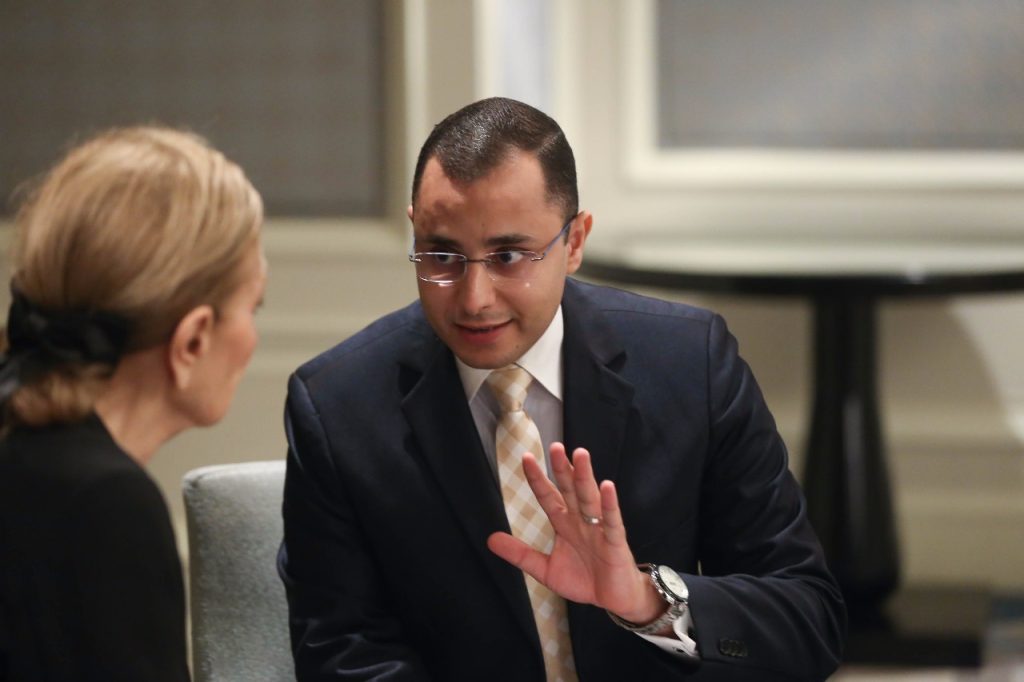Therefore, on the 37th anniversary of the death of her husband the Shah, who passed away on July 27, 1980, and was buried in Al-Rifai Mosque in Al-Qalaa district, south of Cairo, the former Empress visits her husband’s grave every year and commemorates his death and is accompanied by her friend, Mrs. Jehan Sadat.
The former Empress of Iran shares a strong friendship relation with Jehan Sadat, which lasted 47 years, as well as deep feelings for Egypt and the Egyptians.
In Youm7’s interview with Diba, she started by expressing her and her family’s gratefulness to the Egyptian people and the late President Anwar Sadat for their hospitality to them when they came to Egypt in 1979.
When asked about the relationship that she has with Jehan Sadat, Diba said that Mrs. Jehan “is a great friend,” and that she considers what Mrs. Sadat, President Sadat, and the Egyptian people did for them in the wake of what happened in Tehran in 1979, when many friends refused to host them, “is a debt that they appreciate and recognize.”
On the other hand, Youm 7 also talked to Jehan Sadat on Thursday, after she placed flowers on the tomb of President Sadat in Nasr City and the tomb of the late Shah Mohammad Reza Pahlavi in the Rifai Mosque, about receiving Shah Pahlavi and his family in Egypt.
Diba refused to discuss the current Qatari crisis, but when asked about the Hassan Rouhani administration in Iran, she responded that “Rouhani will not be able to implement the things and promises that he said he would do for the Iranian people, but hopes he succeeds.”
On the future of Iran, Diba affirmed that she trusts the Iranian youth to be aware enough, as well as the brave Iranian woman, pointing out the difficult circumstances facing the people in Iran from “executions, imprisonments, poor salaries, the very high poverty rate, as well as the corruption of the Iranian government,” which the Iranian people are aware of.
Article by Mohammed Abo El-Nour
Translated by Mariam Mostafa
Photos by Hazim Abdel Samad




